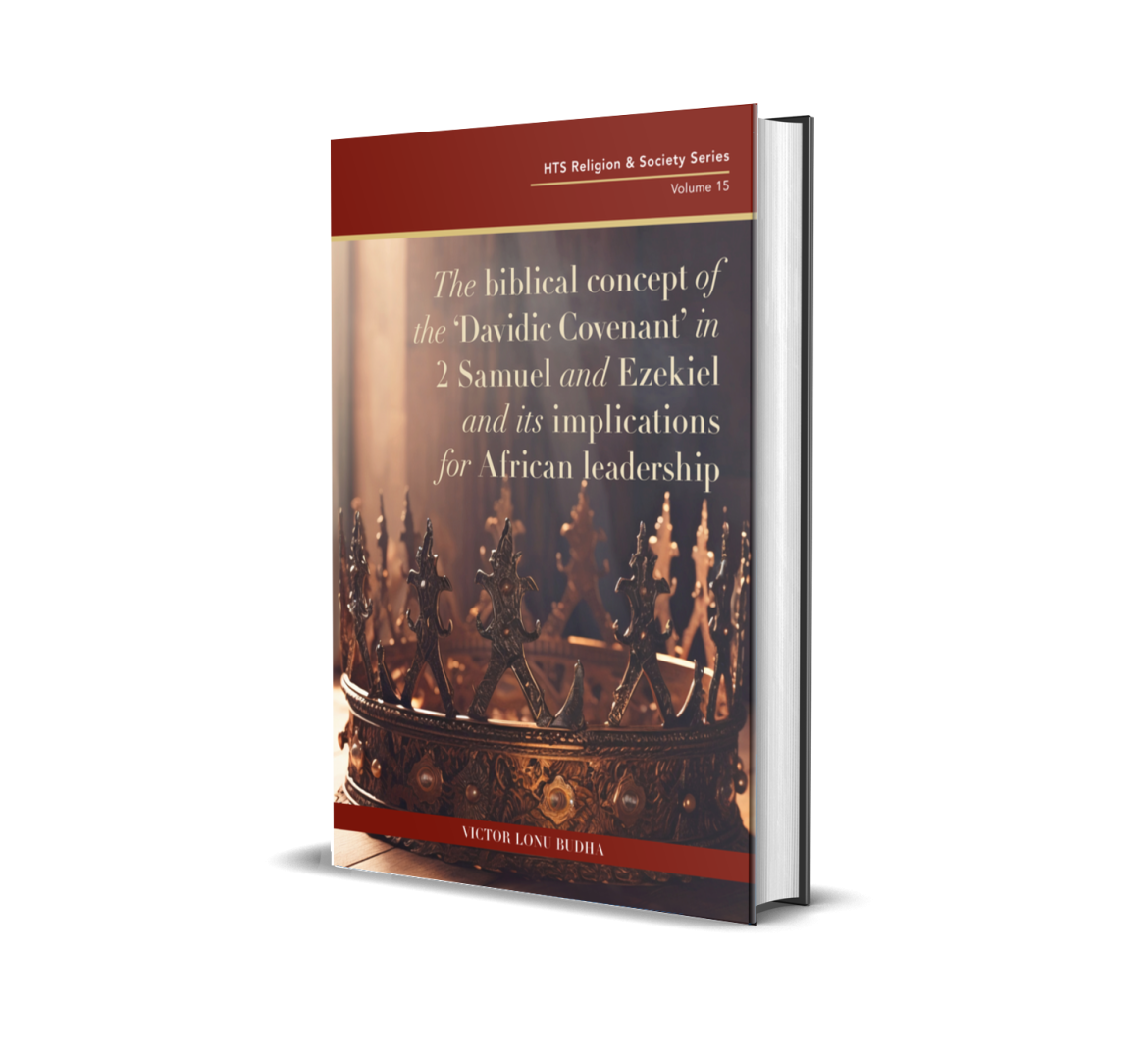The biblical concept of the ‘Davidic Covenant’ in 2 Samuel and Ezekiel and its implications for African leadership is an open-access book published by AOSIS Scholarly Books.
Scholars have offered insight into the Davidic Covenant and the future hope for Israel. However, their works up to this point have overlooked a detailed influence of 2 Samuel 7 on Ezekiel 34 and 37. Therefore, reading the text of Ezekiel in relation to the original form of the Davidic Covenant may reveal further indications of the literary, theological and conceptual influence of 2 Samuel 7 and the help it provides in understanding the function of the promised ruler in Ezekiel 34 and 37. To establish this influence, an intertextual approach proves to be relevant.
The intertextual approach used for the exegesis in this book establishes how biblical books are connected and proves the influence of the text of 2 Samuel on that of Ezekiel 34 and 37. The study of 2 Samuel 7 in relation to the Davidic Covenant underscores God’s faithfulness and concern for his people. Godly leadership is the kind of leadership that God desires for his people. Looking at the Davidic Covenant closely and God’s promises in the text of Ezekiel encompasses important implications for African leadership.
Copyright (c) 2023 Victor Lonu Budha (Author)
This monograph deals with a significant issue related to the Davidic Covenant as an important theological concept. The author points out that little research has been conducted on the possible influence of the Davidic Covenant in 2 Samuel 7 on important passages in Ezekiel 34 and 37, where David is mentioned in connection with the future restoration of Israel. Chapter 1 in this book deals with the rationale of the presented research and the approach followed and presents a survey of previous research, especially on Ezekiel. Chapter 2 deals with the Davidic Covenant, especially in 2 Samuel 7, in which Lonu Budha discusses the covenant in the Old Testament. Chapters 3 and 4 focus on the two passages in Ezekiel. The discussions in these chapters follow a clear pattern, moving from dating to structure and discussing the biblical text. In the final section of each chapter, the author deals with the relationship between the passages in Ezekiel with 2 Samuel 7, and the concept of the covenant in the two passages. He discusses three kinds of influences: literal, theological and conceptual. In Chapter 5, the author delves into the implications of his theological research on African leadership. He offers a refreshing critical perspective on contemporary leadership, emphasising the importance of governments serving the people and not exploiting the country and its people for personal gain.
Prof. Herculaas Frederik van Rooy, Department of Ancient Texts, Faculty
of Theology, North-West University, Potchefstroom, South Africa

